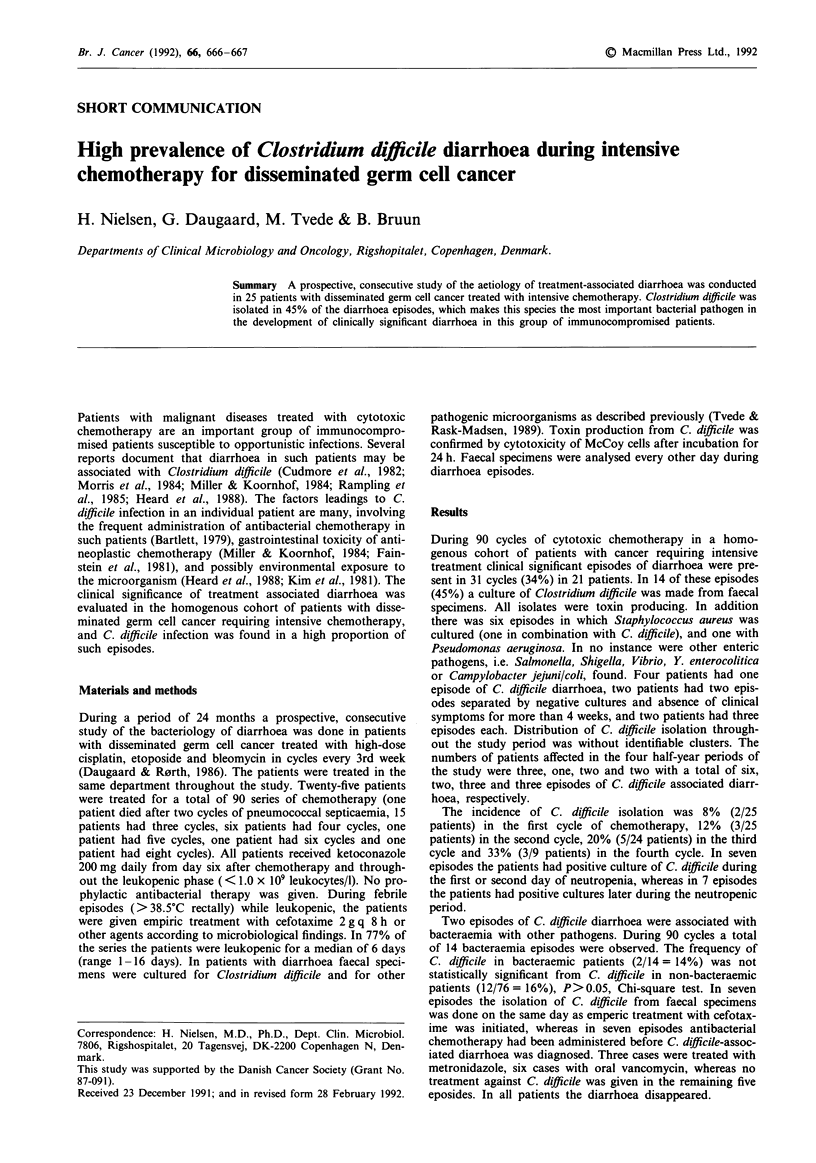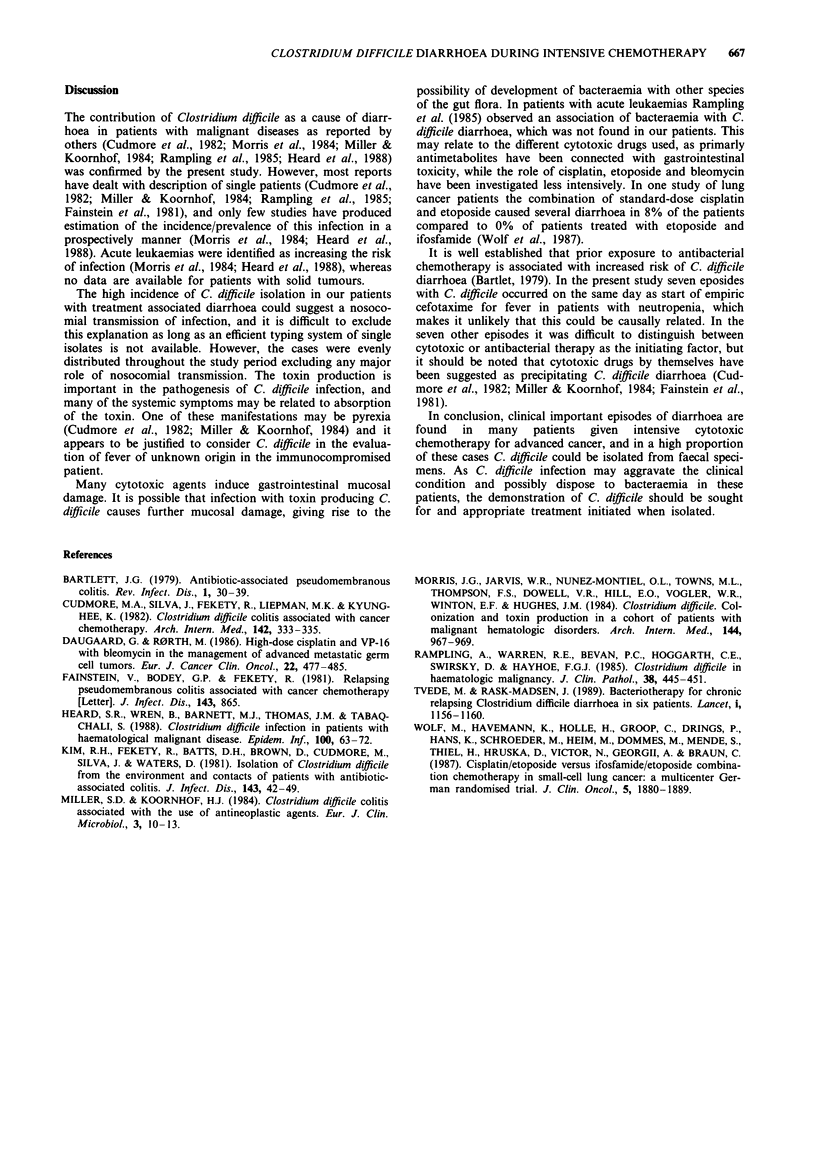Abstract
A prospective, consecutive study of the aetiology of treatment-associated diarrhoea was conducted in 25 patients with disseminated germ cell cancer treated with intensive chemotherapy. Clostridium difficile was isolated in 45% of the diarrhoea episodes, which makes this species the most important bacterial pathogen in the development of clinically significant diarrhoea in this group of immunocompromised patients.
Full text
PDF

Selected References
These references are in PubMed. This may not be the complete list of references from this article.
- Cudmore M. A., Silva J., Jr, Fekety R., Liepman M. K., Kim K. H. Clostridium difficile colitis associated with cancer chemotherapy. Arch Intern Med. 1982 Feb;142(2):333–335. [PubMed] [Google Scholar]
- Daugaard G., Rŗth M. High-dose cisplatin and VP-16 with bleomycin, in the management of advanced metastatic germ cell tumors. Eur J Cancer Clin Oncol. 1986 Apr;22(4):477–485. doi: 10.1016/0277-5379(86)90115-x. [DOI] [PubMed] [Google Scholar]
- Fainstein V., Bodey G. P., Fekety R. Relapsing pseudomembranous colitis associated with cancer chemotherapy. J Infect Dis. 1981 Jun;143(6):865–865. doi: 10.1093/infdis/143.6.865. [DOI] [PubMed] [Google Scholar]
- Kim K. H., Fekety R., Batts D. H., Brown D., Cudmore M., Silva J., Jr, Waters D. Isolation of Clostridium difficile from the environment and contacts of patients with antibiotic-associated colitis. J Infect Dis. 1981 Jan;143(1):42–50. doi: 10.1093/infdis/143.1.42. [DOI] [PubMed] [Google Scholar]
- Miller S. D., Koornhof H. J. Clostridium difficile colitis associated with the use of antineoplastic agents. Eur J Clin Microbiol. 1984 Feb;3(1):10–13. doi: 10.1007/BF02032807. [DOI] [PubMed] [Google Scholar]
- Morris J. G., Jr, Jarvis W. R., Nunez-Montiel O. L., Towns M. L., Thompson F. S., Dowell V. R., Hill E. O., Vogler W. R., Winton E. F., Hughes J. M. Clostridium difficile. Colonization and toxin production in a cohort of patients with malignant hematologic disorders. Arch Intern Med. 1984 May;144(5):967–969. doi: 10.1001/archinte.144.5.967. [DOI] [PubMed] [Google Scholar]
- Rampling A., Warren R. E., Bevan P. C., Hoggarth C. E., Swirsky D., Hayhoe F. G. Clostridium difficile in haematological malignancy. J Clin Pathol. 1985 Apr;38(4):445–451. doi: 10.1136/jcp.38.4.445. [DOI] [PMC free article] [PubMed] [Google Scholar]
- Richmond M. H. Beta-lactam antibiotics and beta-lactamases: two sides of a continuing story. Rev Infect Dis. 1979 Jan-Feb;1(1):30–38. [PubMed] [Google Scholar]
- Tvede M., Rask-Madsen J. Bacteriotherapy for chronic relapsing Clostridium difficile diarrhoea in six patients. Lancet. 1989 May 27;1(8648):1156–1160. doi: 10.1016/s0140-6736(89)92749-9. [DOI] [PubMed] [Google Scholar]
- Wolf M., Havemann K., Holle R., Gropp C., Drings P., Hans K., Schroeder M., Heim M., Dommes M., Mende S. Cisplatin/etoposide versus ifosfamide/etoposide combination chemotherapy in small-cell lung cancer: a multicenter German randomized trial. J Clin Oncol. 1987 Dec;5(12):1880–1889. doi: 10.1200/JCO.1987.5.12.1880. [DOI] [PubMed] [Google Scholar]


